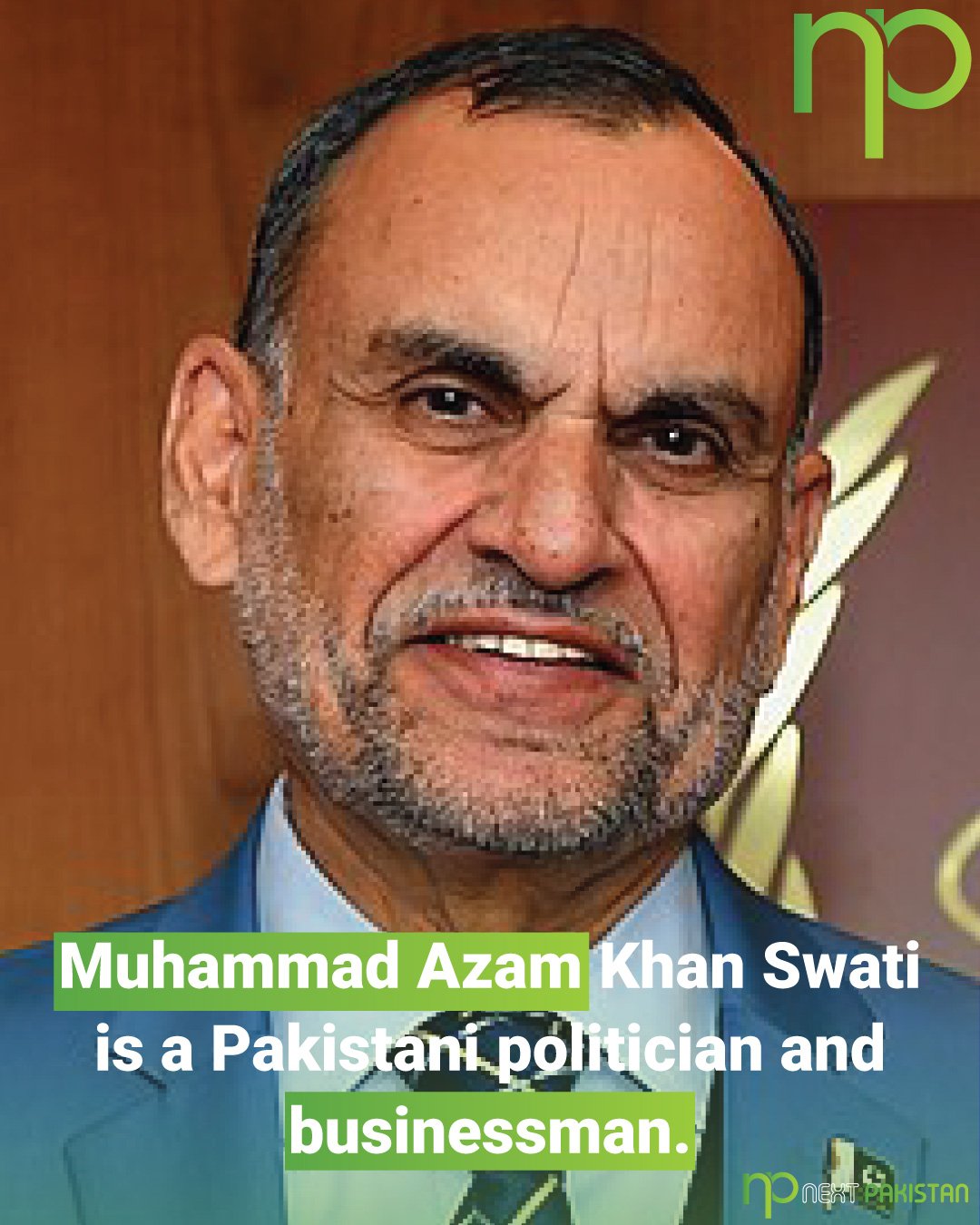
- March 18, 2024
- ubaidah khan
- 0
Introduction:
Muhammad Azam Khan Swati, a prominent Pakistani politician and businessman, has traversed a multifaceted career marked by political activism, business acumen, and legal expertise. Hailing from the Swati tribe of Mansehra, Swati’s trajectory reflects a blend of diverse experiences spanning across continents.
Early Life and Education:
Born on June 22, 1956, in Mansehra, Khyber Pakhtunkhwa, Swati’s upbringing was steeped in a family legacy of political engagement. His educational journey led him to attain a spectrum of qualifications, including a B.A from Post Graduate College, Abbottabad, an M.A in Economics from the University of Peshawar, and an LL.B as a Gold Medalist from the University of Karachi. His pursuit of knowledge extended to the United States, where he obtained an LL.M from the University of Houston Law Center and a Doctor of Jurisprudence from the South Texas College of Law.
Business and Legal Career in the United States:
Swati’s foray into the business realm commenced in the United States, where he transitioned from a humble beginning of working in a convenience store to becoming the proprietor of numerous establishments. His entrepreneurial ventures expanded to include the founding of Pak-Oil Company and investments in real estate across Texas and Louisiana. Concurrently, he pursued a legal career, practicing as an attorney in Houston, Texas, before relinquishing his American citizenship in 2003 to return to Pakistan.
Political Career in Pakistan:
Swati’s political activism unfolded against the backdrop of turbulent times in Pakistan. His early engagement in the 1970s, marked by incarcerations for protesting against military dictatorship, laid the groundwork for his subsequent endeavors. Upon his return to Pakistan in 2001, Swati assumed the mantle of district nazim of Mansehra, eschewing personal gain by refusing salary and security protocols. Subsequently, he ascended to the role of a senator under the banner of Jamiat Ulema-e-Islam before aligning with Imran Khan’s Pakistan Tehreek-e-Insaf (PTI) in 2011.
Ministerial Tenure and Controversies:
Swati’s political career witnessed peaks and troughs, punctuated by ministerial appointments and legal entanglements. He served as Minister of Parliamentary Affairs in Prime Minister Imran Khan’s cabinet before assuming the role of Minister of Narcotics Control and Railways. However, his tenure was marred by controversies, including arrests stemming from alleged provocative tweets against state institutions. Despite legal skirmishes, Swati’s resilience persisted, emblematic of his unwavering commitment to political activism.
Conclusion:
Muhammad Azam Khan Swati’s odyssey from the corridors of academia to the echelons of power encapsulates a narrative replete with triumphs and tribulations. His multifaceted persona as a politician, businessman, and legal luminary underscores the complexity of contemporary Pakistani politics. As he navigates through the intricacies of governance and grapples with challenges, Swati’s indelible imprint on the political landscape endures, shaping the contours of Pakistan’s socio-political milieu.